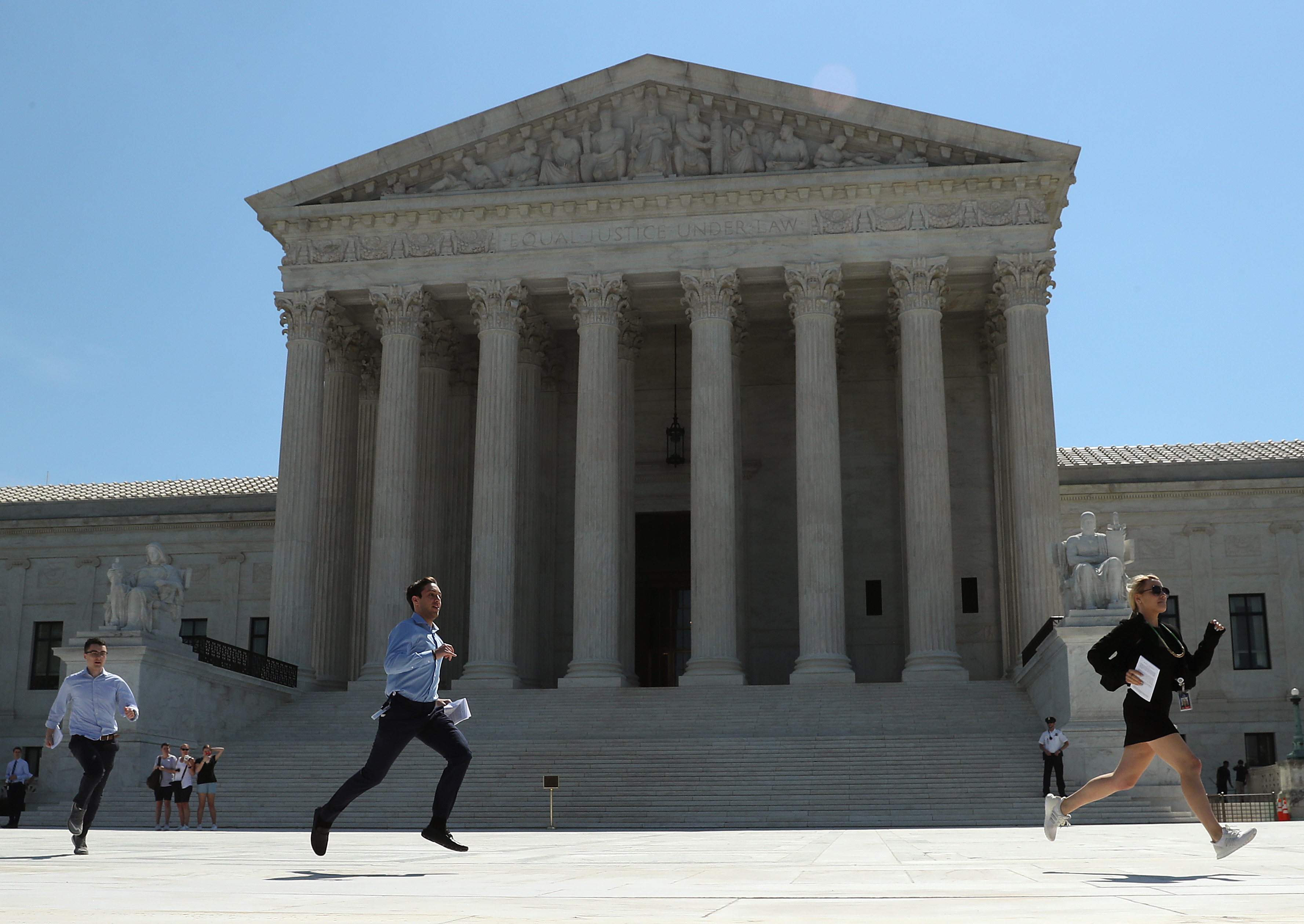There are still 3 ways to fight partisan gerrymandering after the Supreme Court defeat


A free daily email with the biggest news stories of the day – and the best features from TheWeek.com
You are now subscribed
Your newsletter sign-up was successful
On Thursday, the U.S. Supreme Court's conservative majority decided that federal courts have no say in partisan gerrymandering, or the practice of state lawmakers drawing electoral districts to boost their own party at the state and federal level. Advocates of fair and representative electoral maps aren't without options, though. Here are three paths the Supreme Court left open, for now:
1. State courts
The Supreme Court "explicitly said" partisan-gerrymandering lawsuits "are still fair game in state courts," Politico notes. Pennsylvania's high court threw out gerrymandered districts last year, and the next test case will be North Carolina, where Democrats are challenging GOP-drawn state maps at the state Supreme Court, where six of seven justices ran as Democrats. But 38 states use elections as part of the process to fill their high courts, The Washington Post cautions, and "Republicans are highly organized at the state level and have been successful at filling judiciary seats with conservatives."
The Week
Escape your echo chamber. Get the facts behind the news, plus analysis from multiple perspectives.

Sign up for The Week's Free Newsletters
From our morning news briefing to a weekly Good News Newsletter, get the best of The Week delivered directly to your inbox.
From our morning news briefing to a weekly Good News Newsletter, get the best of The Week delivered directly to your inbox.
2. Nonpartisan redistricting systems
In his opinion, Chief Justice John Roberts pointed to some of independent or nonpartisan redistricting processes created by states like Florida, Michigan, Colorado, and Ohio. Former Attorney General Eric Holder, now head of the National Democratic Redistricting Committee, said his group is pushing for nonpartisan redistricting changes in Arkansas, New Hampshire, and Oklahoma in 2020. But a narrow 5-4 Supreme Court majority upheld independent redistricting commissions in 2014, with retired Justice Anthony Kennedy the deciding vote and Roberts voting no, so reformers are concerned this avenue might close, too.
3. The ballot box
State and federal districts will be drawn in 2021, after the 2020 census, and one way to get representative maps is, as Holder said, electing candidates "who support fair maps." Or maybe divided government: Republicans control the governorship and legislature in 22 states, versus the Democrats' 14. National elections matter, too. House Democrats have approved legislation requiring states to establish independent, nonpartisan commissions, but Senate Majority Leader Mitch McConnell (R-Ky.) vows he won't allow it to get a vote in the Senate.
A free daily email with the biggest news stories of the day – and the best features from TheWeek.com
Peter has worked as a news and culture writer and editor at The Week since the site's launch in 2008. He covers politics, world affairs, religion and cultural currents. His journalism career began as a copy editor at a financial newswire and has included editorial positions at The New York Times Magazine, Facts on File, and Oregon State University.
-
 The ‘ravenous’ demand for Cornish minerals
The ‘ravenous’ demand for Cornish mineralsUnder the Radar Growing need for critical minerals to power tech has intensified ‘appetite’ for lithium, which could be a ‘huge boon’ for local economy
-
 Why are election experts taking Trump’s midterm threats seriously?
Why are election experts taking Trump’s midterm threats seriously?IN THE SPOTLIGHT As the president muses about polling place deployments and a centralized electoral system aimed at one-party control, lawmakers are taking this administration at its word
-
 ‘Restaurateurs have become millionaires’
‘Restaurateurs have become millionaires’Instant Opinion Opinion, comment and editorials of the day
-
 ABC News to pay $15M in Trump defamation suit
ABC News to pay $15M in Trump defamation suitSpeed Read The lawsuit stemmed from George Stephanopoulos' on-air assertion that Trump was found liable for raping writer E. Jean Carroll
-
 Judge blocks Louisiana 10 Commandments law
Judge blocks Louisiana 10 Commandments lawSpeed Read U.S. District Judge John deGravelles ruled that a law ordering schools to display the Ten Commandments in classrooms was unconstitutional
-
 ATF finalizes rule to close 'gun show loophole'
ATF finalizes rule to close 'gun show loophole'Speed Read Biden moves to expand background checks for gun buyers
-
 Hong Kong passes tough new security law
Hong Kong passes tough new security lawSpeed Read It will allow the government to further suppress all forms of dissent
-
 France enshrines abortion rights in constitution
France enshrines abortion rights in constitutionspeed read It became the first country to make abortion a constitutional right
-
 Texas executes man despite contested evidence
Texas executes man despite contested evidenceSpeed Read Texas rejected calls for a rehearing of Ivan Cantu's case amid recanted testimony and allegations of suppressed exculpatory evidence
-
 Supreme Court wary of state social media regulations
Supreme Court wary of state social media regulationsSpeed Read A majority of justices appeared skeptical that Texas and Florida were lawfully protecting the free speech rights of users
-
 Greece legalizes same-sex marriage
Greece legalizes same-sex marriageSpeed Read Greece becomes the first Orthodox Christian country to enshrine marriage equality in law
